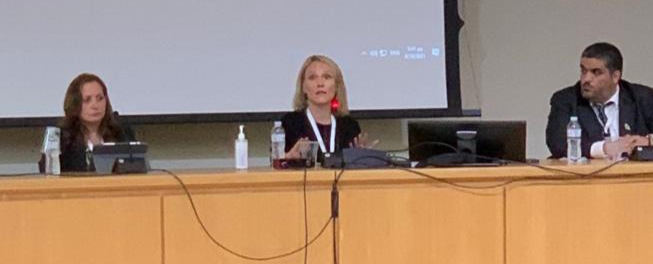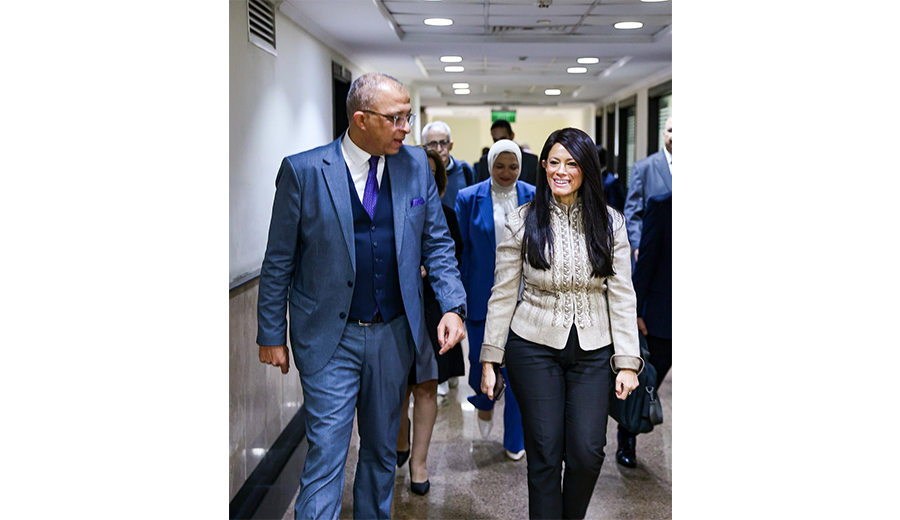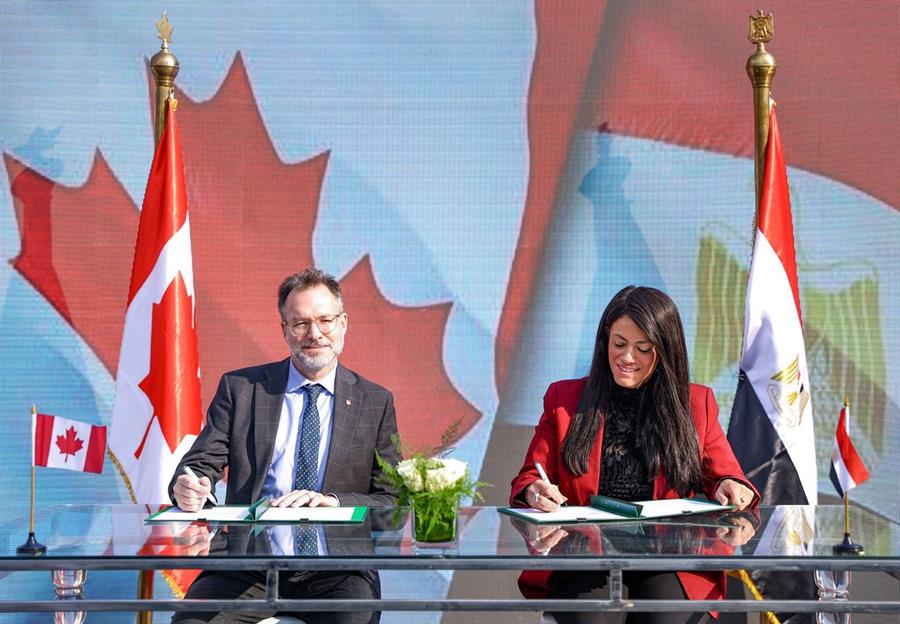Egypt’s NIGSD participates in the 14th International Conference on the Theory and Practice of Digital Governance in Greece

08 October 2021
Dr. Sharifa Sharif, Executive Director of the National Institute for Governance and Sustainable Development (NISGD), the training arm of the Ministry of Planning and Economic Development, participated in the activities of the 14th International Conference on the Theory and Practice of Digital Governance.
The conference is organized by the United Nations University under the auspices of the Ministry of Digital Transformation in Greece and partnership with Aegean University and Harukopio University.
The conference took place under the title “Smart Digital Governance for Global Sustainability” from 6 to 8 October 2021.The conference came in light of the cooperation between the Institute and the United Nations University, under the memorandum of understanding signed in January of this year.Dr. Sherifa Sherif, during her participation as a high-level speaker in the panel discussion entitled "Cross-Border Cooperation and Digital Diplomacy: Experiences and Needs to Survive the Wave of Digital Transformation", referred to NIGSD's role in applying governance principles to achieve Egypt's Vision 2030 and the sustainable development goals.Sherif added that NIGSD is entrusted with the responsibilities of training, research, and advisory services to promote good governance practices through sustainability awareness initiatives, developing strategies, and monitoring Egypt's ranking according to international indicators in governance and sustainable development.Sherif said that the institute's vision is to become the leading center of excellence in providing consultancy, research, and training in the Middle East and North Africa region.NISGD also seeks to enhance and develop Egypt's position in the field of governance and sustainable development by providing consultations, research, and training programs that seek and emphasize the dissemination of the culture, values , and practices of sustainability and the activation of governance mechanisms in Egypt.
Sherif referred to the institute's approach to expanding training partnerships with the most prestigious regional and international institutes and institutions, intending to provide a distinct set of training programs.
Sharaf emphasized that partnerships with the best universities, colleges, and international educational institutes in the context of supporting the qualification and training process; contributes to empowering promising leaders, refining their expertise in dealing with contemporary challenges, and improving institutional performance by focusing on some basic topics and addressing them using an integrated training curriculum.Sherif highlighted the national initiative "She is for a digital future", which was launched by the institute last July in cooperation with the United Nations Development Program and the global company Cisco; which aims to bridge the digital gender divide.Sherif also highlighted the training program launched by the Institute last August on governance and digital transformation in Portugal for 26 Egyptian government leaders, in cooperation with the United Nations University through the "United Nations University Operating Unit on Policy-Driven E-Governance" in Portugal.Sherif referred to the digital activities of the Ministry of Planning and Economic Development, including the COVID-19 Policy Tracker Observatory for 437 policies, the Citizen Investment Plan, the Share 2030 mobile application, and the Sustainable Development Goals Observatory dashboard.Sherif also touched on the institute’s launch of the “Estidama” digital education platform, which allows more than 50 programs in various fields in governance and sustainable development through interactive training in development and capacity building, in addition to launching the digital education platform ATINGI specifically for African countries in cooperation with the German Cooperation Agency.” International GIZ.
Sherif indicated that the institute is the only entity in Egypt entrusted with raising programs, using the Atenji platform, and circulating the programs in it at the level of Africa, explaining that the platform is open to all categories in the African continent, where the trainee receives an electronic certificate upon completion of the training program.
Sherif confirmed that the institute was chosen by Atingi as an exclusive partner from Egypt to expand training opportunities throughout Egypt and the African continent.









